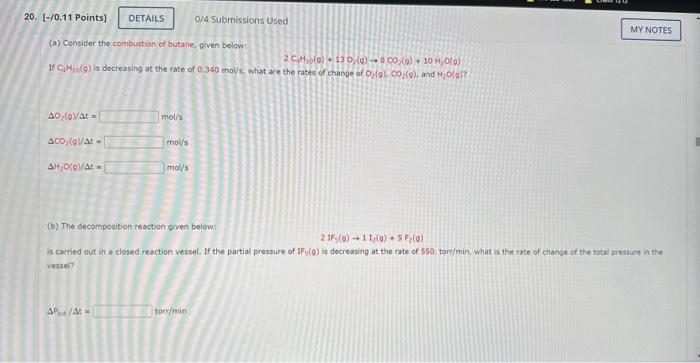Answered step by step
Verified Expert Solution
Question
1 Approved Answer
2C4H10(g)+13O2(g)0CO2(g)+10+H2O(g) If C4H10(g) is decreasing at the rate of 0,340 mol/s, what are the rates of change of O2(g),CO2(g), and H,O(g) ? O2()/t=CO2(g)/t=H2O()/t=mol/smol/smol/s (b) The

Step by Step Solution
There are 3 Steps involved in it
Step: 1

Get Instant Access to Expert-Tailored Solutions
See step-by-step solutions with expert insights and AI powered tools for academic success
Step: 2

Step: 3

Ace Your Homework with AI
Get the answers you need in no time with our AI-driven, step-by-step assistance
Get Started


